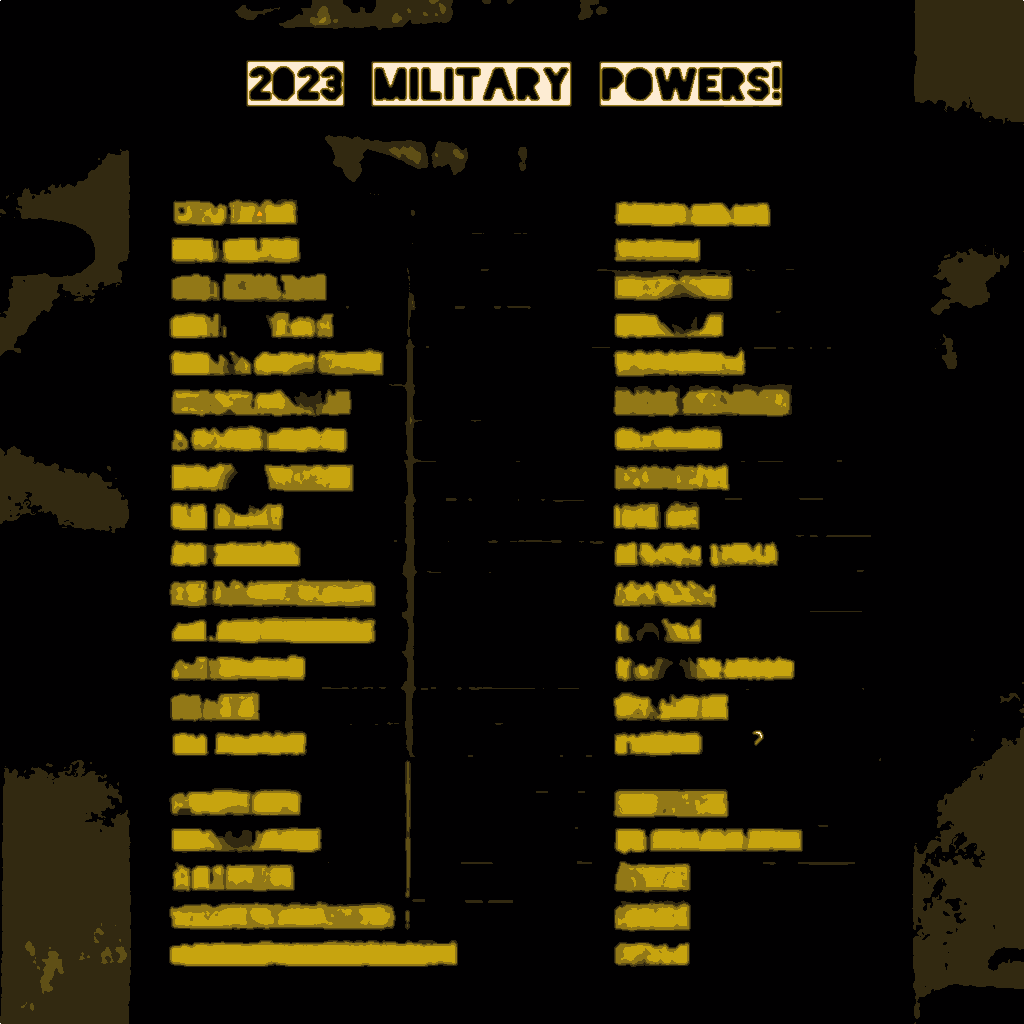Many people look to military power lists to determine how strong a nation’s military is. These rankings place nations according to their personnel numbers, stockpile of weapons and equipment, and spending on defence. It’s understandable why these lists are so well-liked. They offer a quick, quantitative method of contrasting the military prowess of various nations. These lists, however helpful they may seem, do not account for all of the subtleties and intricacies of military might. We will examine the shortcomings of gauging military power only through numerical data and why depending on military power lists can be deceptive and ultimately pointless.
Military power lists frequently consider a variety of elements, including the size of a nation’s military, the quantity of weapons and equipment it possesses, and its defence budget. The popular Global Firepower list uses metrics such as coastlines, workforce and oil production provide a more accurate assessment of a nation’s overall power. These variables give a reasonable overview of a nation’s prowess, but they ignore the various complexities and subtleties of military strength.
For instance, a nation’s military might not be as effective as its size might suggest. A smaller, well-trained military may be more effective in war than a larger one because it may be more manageable and easier to coordinate. A nation’s military strength is not always indicated by the quantity of weapons and equipment it has. Even if a nation possesses the most cutting-edge weaponry, if its soldiers lack the knowledge and experience necessary to use them effectively, they will not be as strong as a nation with less cutting-edge weapons but better trained and more experienced soldiers.
While it is sometimes taken into account in military power rankings, a nation’s defence expenditure is not a precise indicator of its military might. A nation’s commitment to maintaining a robust military can be shown by a high defence budget, but this does not always imply that the force is well-trained or combat-ready.
There are numerous examples of nations with robust armed forces that do not appear to be major military powers. For instance, Israel has a well-trained, highly motivated, and competent military despite its comparatively modest size and population. Similar to Singapore, which has a small military but one that is highly skilled, well-equipped, and trained, they are able to outperform their size in terms of military prowess. These examples show that in terms of military strength, numbers do not always tell the whole picture.
Military power lists also seem to ignore the capabilities of different weapons platforms or vehicles. For instance 100 MiG-21s will add as much points to a nation’s rankings as 100 F-35s. Or nuances such beyond-visual range missiles, radar, and other key components will be completely ignored. Important assets in today’s militaries such as drones and air defence systems aren’t even featured in lists such as Global Firepower. These aspects seriously undermine the reliability of these lists
Battle experience is a major advantage which cannot be overlooked. Not only because it trains soldiers in real, stressful scenarios but because it can form new tactics and doctrines. Thus enabling brand new techniques of war unique to a particular force. This is especially true when combined with a robust domestic defence industry. A force which is actively participating in combat can provide accurate feedback to arms manufacturers, which can in turn lead to improved weapons, as well ideas for new innovative systems. Overall, a military which uses its domestic arms in real combat has in immense advantage over arms importers and/or militaries which aren’t participating in ongoing wars.
A crucial non-military aspect that can have a big impact on a nation’s military power is intelligence. Strong intelligence capabilities enable nations to obtain vital intelligence on their adversaries, enabling them to better plan for prospective wars and decide how to respond to them.
Conclusion: Rather than relying exclusively on military power lists, it is critical to take into account a wider range of variables when evaluating a nation’s military might. We urge people to evaluate the information they are given on military power seriously and to look at a variety of sources. We can get a better grasp of a nation’s military capabilities by adopting a more sophisticated approach to understanding military power.


Loading new replies...
Join the full discussion at the DefenceHub | Global Military & Security Forum →